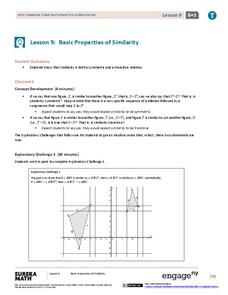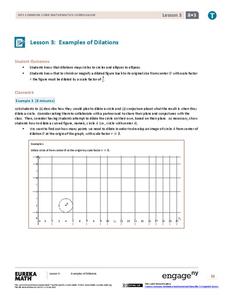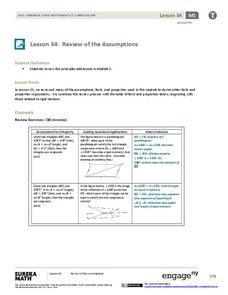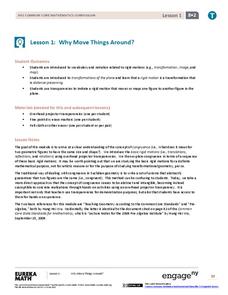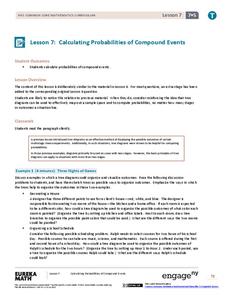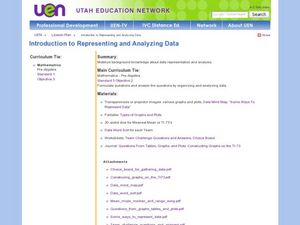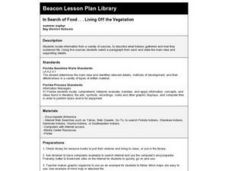Curated OER
Home Sweet Home-Far From Home
Students observe slides of U.S. coastal geography. They study topography and vegetation maps for one region. They gather geographic facts on a guided worksheet. Students pretend to be colonists. They decide what kind of economic system...
Curated OER
The Search for the Northwest Passage
Third graders listen to lectures and research the motivations and history of the Spanish, French and English explorers searching for the Northwest Passage to India. They trace routes on maps and consider how these explorers helped shaped...
Curated OER
Robert Fulton and the Steamboat, "Trail of Tears"
Second graders study Fulton and his Steamboat, the "Trail of Tears," the Oregon Trail, the Transcontinental Railroad and the Pony Express in this series of lessons.
Curated OER
Character in Leadership
Fifth graders inquire and research using secondary and primary resources. In this leadership traits unit, 5th graders investigate information about Harry S. Truman and present on his early life and leadership abilities. Possible lesson...
Curated OER
A Visit to Bratislava
Ninth graders explore the country of Bratislava. In this Eastern European lesson, 9th graders read an article and answer comprehension questions. Students create a presentation for their classmates on Bratislava.
EngageNY
Correspondence and Transformations
Looking for a strategy to organize the information related to transformations? The materials ask pupils to identify a sequence of rigid transformations, identify corresponding angles and sides, and write a congruence statement. They...
EngageNY
Basic Properties of Similarity
Does the symmetry and transitive property apply to similarity? The 10th segment in a series of 16 presents the class with a group of explorations. The explorations have pairs show that similarity is both symmetrical and transitive. It...
EngageNY
Examples of Dilations
Does it matter how many points to dilate? The resource presents problems of dilating curved figures. Class members find out that not only do they need to dilate several points but the points need to be distributed about the entire curve...
EngageNY
Dilations as Transformations of the Plane
Compare and contrast the four types of transformations through constructions! Individuals are expected to construct the each of the different transformations. Although meant for a review, these examples are excellent for initial...
EngageNY
Review of the Assumptions (part 2)
Is the amount of information getting overwhelming for your geometry classes? Use this strategy as a way to organize information. The resource provides a handout of information studied in relation to triangle congruence. It includes a...
EngageNY
Why Move Things Around?
Explore rigid motion transformations using transparency paper. Learners examine a series of figures and describe the transformations used to create the series. They then use transparency paper to verify their conclusions.
EngageNY
Are All Parabolas Congruent?
Augment a unit on parabolas with an instructive math activity. Pupils graph parabolas by examining the relationship between the focus and directrix.
Curated OER
Welcome to My World
Elementary schoolers discuss what a community is, and what their community has to offer them. They create posters, or flyers for the different businesses or places in their community to place around their school. After the students have...
EngageNY
Modeling an Invasive Species Population
Context makes everything better! Groups use real data to create models and make predictions. Classmates compare an exponential model to a linear model, then consider the real-life implications.
EngageNY
Calculating Probabilities of Compound Events
Use tree diagrams with multiple branches to calculate the probabilities of compound events. Pupils use tree diagrams to find the sample space for probability problems and use them to determine the probability of compound events in the...
EngageNY
Applications of Congruence in Terms of Rigid Motions
Corresponding parts, congruent parts, congruent corresponding parts—what does it all mean? The resource challenges pupils to identify corresponding parts for pairs of figures. It uses examples of figures that undergo rigid...
Curated OER
Word Association Poetry with Visual Thesaurus (or Not)
Young poets get inspiration and guidance for making word association poems with the Visual Thesaurus. Your class could complete this project with nothing more than a pencil and paper as well. A nice one-off for a substitute during your...
Curated OER
Public and Private Sector Aims
Students investigate the competing aims of businesses in the private and public sector. They examine the difference between a public sector organization and a private sector organization, along with the major objectives of business...
Curated OER
Introduction to Representing and Analyzing Data
Represent data graphically. Allow your class to explore different methods of representing data. They create foldables, sing songs, and play a dice game to reinforce the measures of central tendency.
Curated OER
In Search of Food...Living Off the Vegetation
Fourth graders locate information to describe what Indians gathered and how they sustained life. They use 5 resources, select a paragraph from each and state the main idea and supporting details.
Curated OER
Business Location
Students consider factors that modern business, in the light of technological and economic changes, might have to consider in decisions to re-locate. The Activity is based around a scenario of a business selling CDs and DVDs to a variety...
Curated OER
Market Analysis
Students examine how markets can be broken down by businesses. They explore topics such as market positioning and market segments. They discuss how market structure influences the market itself.
Curated OER
Motivation
Students examine the role of motivation in the workplace. They identify different motivation techniques and analyze the views of motivational thinkers. They apply the knowledge they gathered to different scenerios.
Curated OER
Inequality
Young scholars examine the concept of inequality. They compare and contrast vertical and horizontal inequality and identify methods on how inequality is measured. They research trends of inequality in the United Kingdom.








